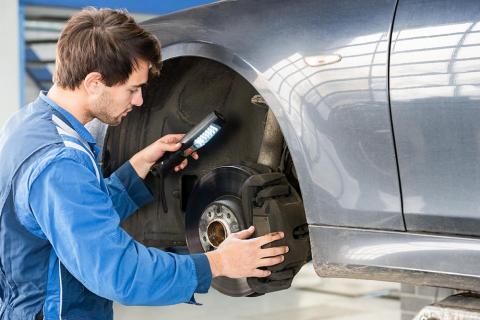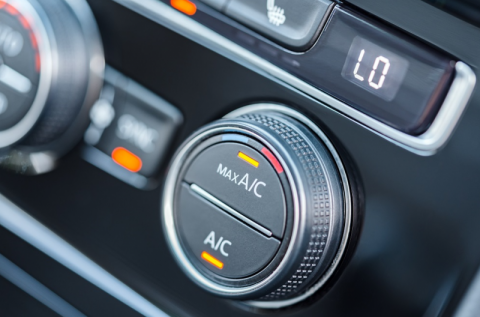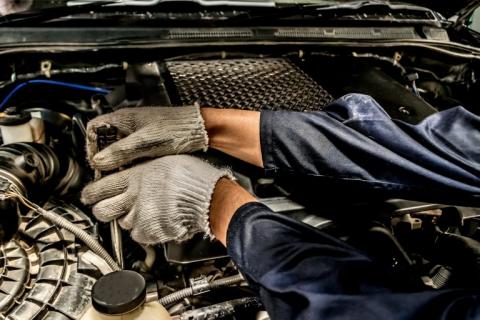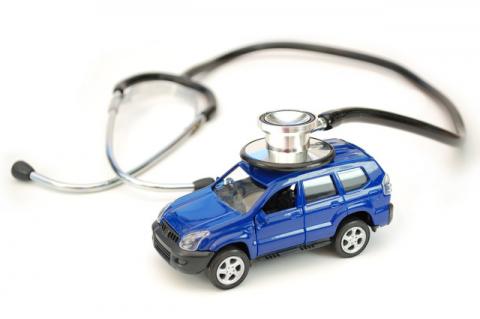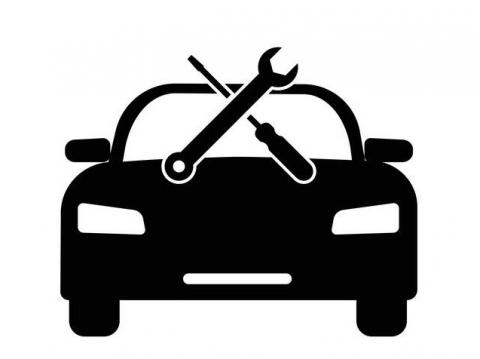The Importance of Brake Maintenance: Ensuring Safety on the Road

The safety of your vehicle, passengers, and yourself hinges on the condition of your brakes. Proper brake maintenance is not merely a choice but a responsibility. In this blog, we'll explore the paramount importance of entrusting your brake maintenance to professionals, ensuring safety on the road.
The Vital Role of Brakes
Your vehicle's brakes are the most critical safety feature, and they play a multifaceted role.
- Stopping Power: Brakes provide the necessary stopping power to avoid accidents and safely slow down your vehicle.
- Control and Stability: Effective brakes contribute to your ability to control your vehicle and maintain stability during sudden stops or emergency maneuvers.
- Preventing Wear and Tear: Well-maintained brakes reduce wear and tear on other components, ensuring a longer lifespan for your vehicle.
- The Consequences of Neglect: Neglecting brake maintenance can have dire consequences:
- Reduced Braking Efficiency: Worn-out brake pads, damaged rotors, or brake fluid issues can severely reduce your braking efficiency, increasing your stopping distance.
- Brake Failure Risk: Over time, untreated issues can lead to brake failure, a situation that poses serious dangers to you, your passengers, and other road users.
- Increased Repair Costs: Neglecting brake maintenance may lead to more extensive and expensive repairs or replacements down the line.
The Importance of Professional Brake Maintenance
For a safe and secure driving experience, here's why you should trust our professional repair shop with your brake maintenance:
- Skilled Expertise: We are well-versed in brake systems and can identify issues that an untrained eye might miss.
- Precision Diagnosis: We have the diagnostic tools to precisely pinpoint brake problems, ensuring accurate solutions.
- Quality Parts: We use high-quality, reliable brake parts that meet industry standards and regulations.
- Safety Guarantee: Entrusting your brake maintenance to us ensures your safety and the safety of others on the road.
- Preventive Measures: We can address issues before they become major problems, reducing the risk of brake failure.
- Warranty Protection: We offer warranties on our services, providing peace of mind.
Brake maintenance is not an option; it's a necessity. To ensure the safety of your vehicle and those on the road, turn to our professional repair shop for your brake maintenance needs. Our expertise, diagnostic tools, and high-quality parts guarantee a safe and reliable braking system. By prioritizing professional brake maintenance, you'll not only safeguard your well-being but also prolong the life of your vehicle, avoid costly repairs, and enjoy a secure and worry-free driving experience. Your brakes are your lifeline on the road; trust them to the experts.

 Mon-Fri: 8am-5pm | Closed daily for lunch: 11:30am-12:30pm
Mon-Fri: 8am-5pm | Closed daily for lunch: 11:30am-12:30pm (402) 339-6460
(402) 339-6460 219 E 1st St, Papillion, NE 68046
219 E 1st St, Papillion, NE 68046


